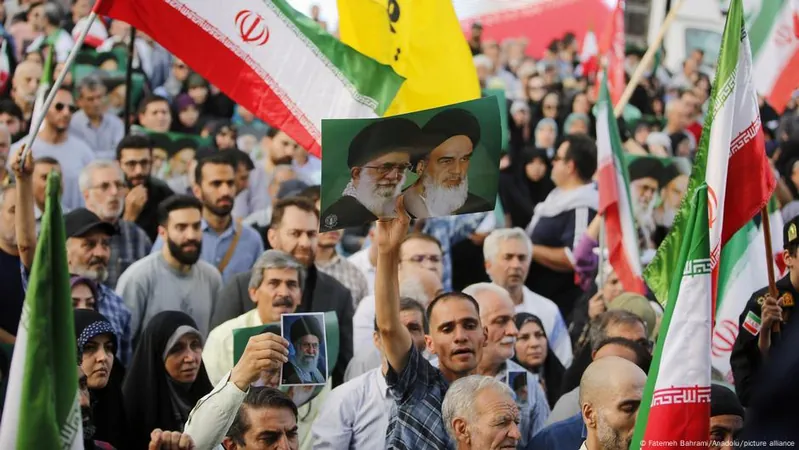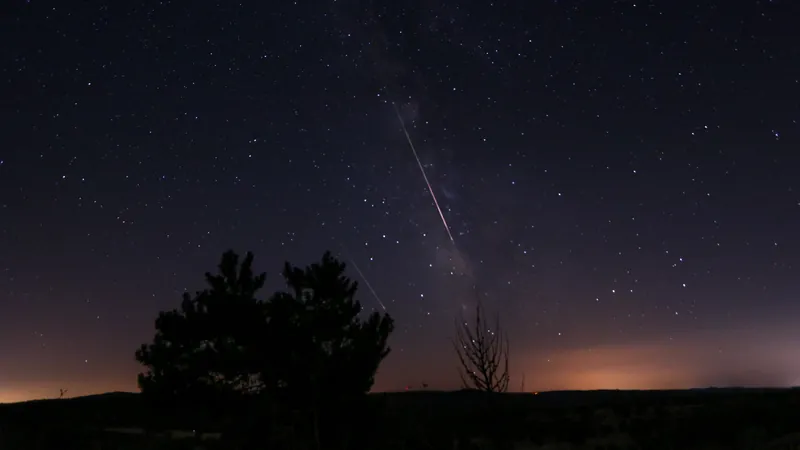
Iran Threatens Response Following U.S. Airstrikes on Nuclear Sites
2025-06-22
Author: Ying
Iran Vows to Retaliate Against U.S. After Airstrikes
In a dramatic escalation of tensions, Iranian President Masoud Pezeshkian declared that the United States must face consequences for its recent airstrikes against Iranian nuclear facilities. The U.S. operation, dubbed "Midnight Hammer," was hailed by President Trump as a sweeping success that 'obliterated' three key nuclear sites.
Implications of the U.S. Strikes
The Iranian response comes as the U.S. asserts that its actions will not deter Iran's nuclear ambitions. In a stern warning, Iran's top diplomat threatened 'everlasting consequences,' suggesting that retaliation could be imminent. Following these developments, the EU has scheduled an emergency meeting to address the growing threat of an Iranian nuclear weapon.
Strait of Hormuz in Focus
The situation raises concerns over the vital Strait of Hormuz, a chokepoint for global oil shipments. Iranian officials are reportedly contemplating a blockade of the strait, which sees around 20% of the world's oil flow. While experts believe such a closure is unlikely, the mere threat has sent ripples of anxiety through global markets.
Global Reactions and Warnings
At the United Nations, Secretary-General Antonio Guterres cautioned that military escalation could lead to a cycle of retaliation that might destabilize the entire region. Meanwhile, U.S. Secretary of State Marco Rubio dismissed Iranian threats of revenge, branding them as the 'worst mistake they could make.' He emphasized that the world is now a safer place following the airstrikes.
Iran's Military Responses and Strategies
The Iranian Revolutionary Guards made it clear that U.S. military bases throughout the Middle East are now on high alert, suggesting that U.S. involvement has placed its forces in imminent danger. They claimed that Iran has various options available to retaliate.
Israel's Offensive Expands
As reports confirm that Israel has carried out multiple strikes across Iran, including attacks on missile launchers and critical military installations, the Israeli military is resolute in its campaign against what they describe as an ‘existential threat.’ This aggressive strategy highlights a continued cycle of violence in the region.
International Concerns Mount
China has criticized the U.S. attacks, calling them exacerbating tensions that contradict international laws. The global community watches closely, uncertain of how this latest confrontation will unfold and what its ramifications will be for an already fragile Middle East.
Next Steps and Possible Outcomes
As both diplomatic and military tensions rise, all eyes are on the upcoming diplomatic discussions. The potential for escalation is high, and as President Pezeshkian has urged unity among Iranians against external aggression, the region stands at a precipice that could spark broader conflicts.




 Brasil (PT)
Brasil (PT)
 Canada (EN)
Canada (EN)
 Chile (ES)
Chile (ES)
 Česko (CS)
Česko (CS)
 대한민국 (KO)
대한민국 (KO)
 España (ES)
España (ES)
 France (FR)
France (FR)
 Hong Kong (EN)
Hong Kong (EN)
 Italia (IT)
Italia (IT)
 日本 (JA)
日本 (JA)
 Magyarország (HU)
Magyarország (HU)
 Norge (NO)
Norge (NO)
 Polska (PL)
Polska (PL)
 Schweiz (DE)
Schweiz (DE)
 Singapore (EN)
Singapore (EN)
 Sverige (SV)
Sverige (SV)
 Suomi (FI)
Suomi (FI)
 Türkiye (TR)
Türkiye (TR)
 الإمارات العربية المتحدة (AR)
الإمارات العربية المتحدة (AR)